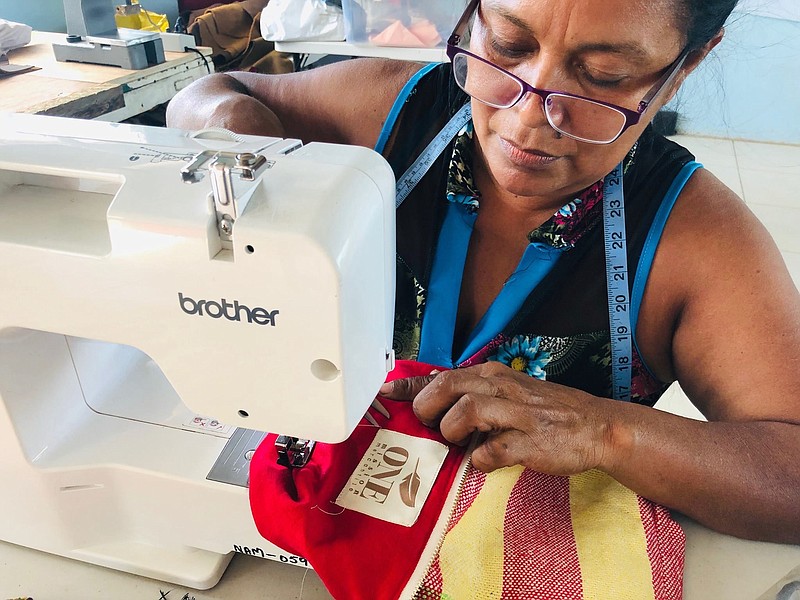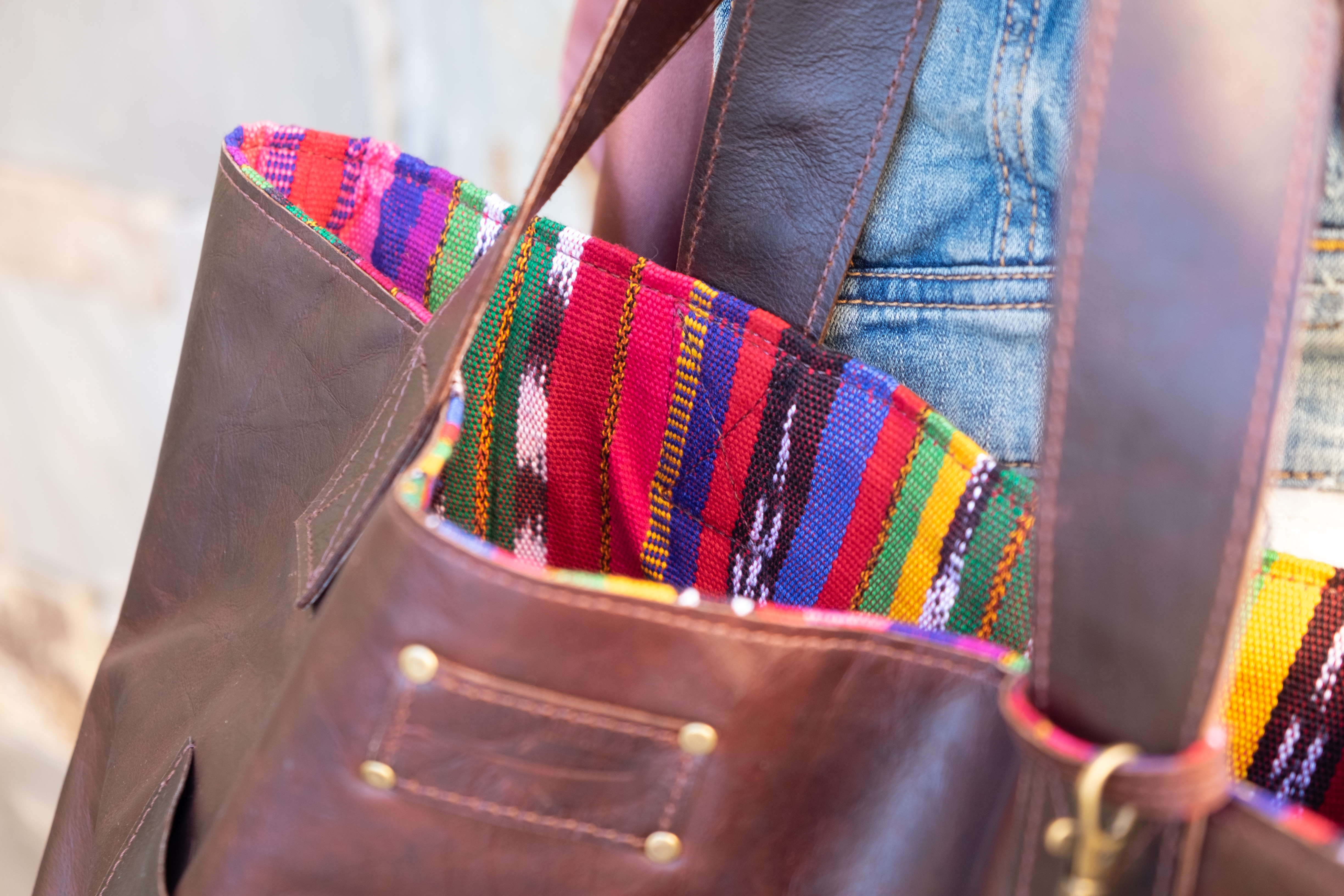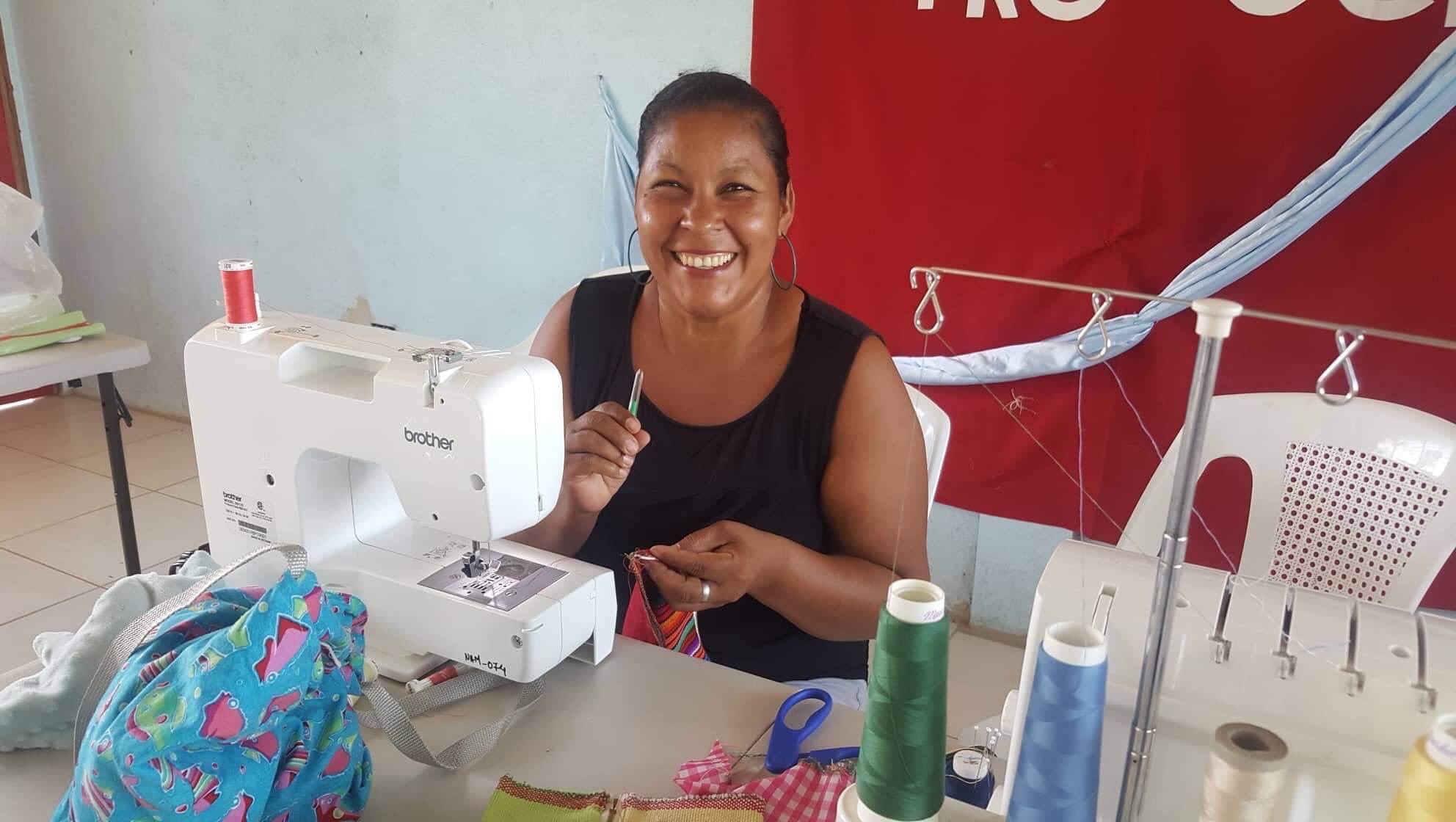One Mission Mercantile employs 11 women in León, Nicaragua, but the nonprofit is based in Ringgold.
The commercial enterprise is an offshoot of the Katie Beth Carter Memorial Institute, which a group of Heritage High School students founded in 2017 to offer education, meal assistance and translatable skills to the people of Tomas Borge, Nicaragua.
The institute is named after a Heritage High School graduate who died in a car accident in 2016 and who, in both life and death, inspired her community to help others.
Jamie Walther is a Heritage Middle School life science teacher by day, but came on board to serve the institute back in 2017. She now devotes her time after school and on weekends to One Mission, often visiting the country during summer and holiday breaks.
"I said yes because I wanted to honor Katie," Walther said, "but I really had no idea what I was going to do there because I'd never been on a mission trip before."
But she kept an open mind on her first trip in July 2017.
"I went, and I fell in love with the community," Walther said.
In his free time, Heritage High School football coach E.K. Slaughter oversees LB4C, Legacy Builders 4 Change, the umbrella group over the institute. He asked Walther to help with the financial side of LB4C's operations.
By coincidence, the church the group had partnered with in Nicaragua had 20 sewing machines donated a few years prior, Walther said. And Walther's mother, who died a few months before Katie Beth, was a master seamstress, so she had some tricks up her sleeve.
That gave her an idea for how to make money, while also meeting the requirement that Nicaraguan secondary schools have a vocational program in the country.
Walther started small, with a makeup bag, then kept sewing.
"I made a simple leather tote with a fabric pocket, brought that in, brought a fabric makeup bag, a bookmark and a key fob with a business plan and [the LB4C board] loved it," she said.
One Mission Mercantile launched in October 2018. The two-month program teaches women in Nicaragua how to make the bags and bookmarks. They are trained to do leather work, to sew or to make jewelry and accessories.
When it first started, Walther and Slaughter shared their story with the women, and slowly they began to open up.
"We're about relationships, we're not about trying to be the big white savior," Walther said. "We knew that it wasn't just going to be a sewing room and a vocation that allowed for an income, it was going to be about their hearts."
The first group of women to go through the program nicknamed themselves "God's Blessings," and named the makeup bags "Blessing Bags."
The women are paid a fair, living wage for their work and receive a commission on each product they help with. The program also annually donates money into a savings account for each woman, and another portion of proceeds is put toward a community service project.
"If we had enough orders for a full 40-hour workweek, they would make at least, if not more, than what a full-time teacher makes in Nicaragua between their in-hand take-home and their savings," Walther wrote in a follow-up email.
The community savings is given at the end of the year. Last Christmas, the women used the money to purchase Christmas gifts for 100 children and feed people in a neighboring village.
In 2020, the team wants to expand and develop the program to allow more women to come into the vocational school.
"With more machines, comes more jobs," Walther said. "It allows us to restructure what we already have."
Many of the women come from difficult circumstances, she added, and watching them grow and smile is one of the most fulfilling things she's done alongside becoming a mother.
"They're finding value and dignity in what they're doing," said Walther.
Email Sabrina Bodon at sbodon@timesfreepress.com.


